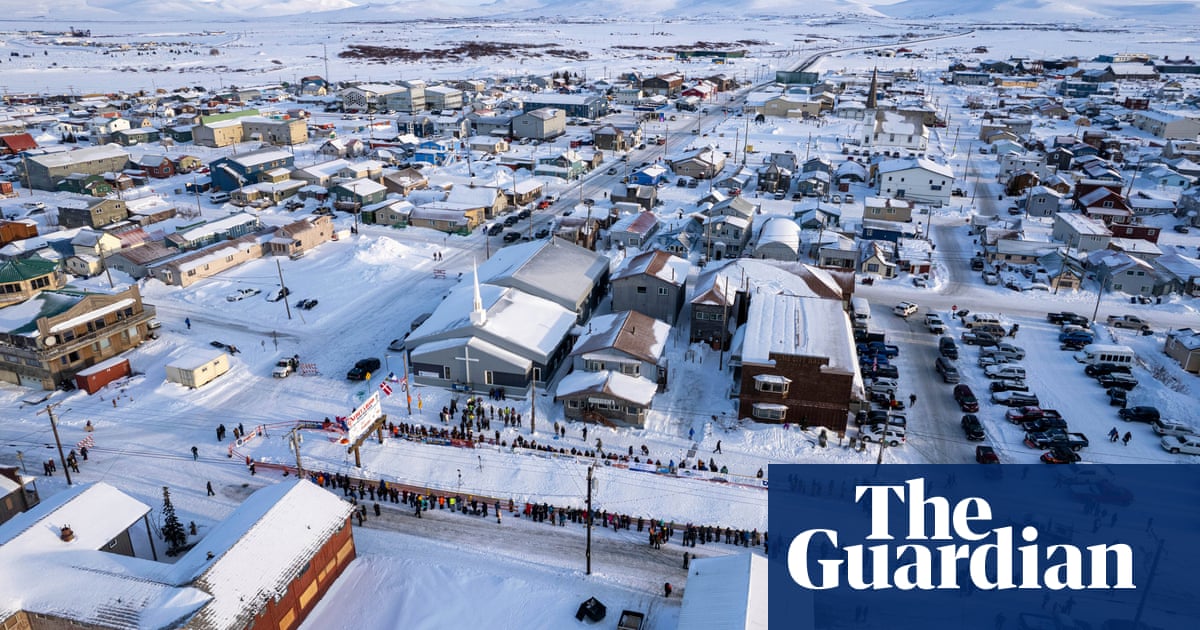
France and the US working to implement a 21-day temporary ceasefire between Hezbollah and Israel
As we mentioned earlier, France’s foreign minister has told the UN security council that his country and the United States are working to hammer out a 21-day temporary ceasefire between Hezbollah and Israel to allow time for broader negotiations,
“A diplomatic solution is indeed possible. In recent days, we’ve worked with our American partners on a temporary ceasefire platform of 21 days to allow for negotiations,” Jean-Noël Barrot told the 15-member UN security council.
He said the plan would be made public soon.
“We are counting on both parties to accept it without delay, in order to protect civilian populations and allow for diplomatic negotiations to begin,” he said.

Barrot will head to Lebanon at the end of the week and said Paris had worked with the parties in defining the parameters for a diplomatic way out of the crisis under UN security council resolution 1701.
“It’s a demanding path, but it is a possible path,” he said.
Resolution 1701 – adopted after a month-long war between Israel and Hezbollah in 2006 – expanded the mandate of a UN peacekeeping force, allowing it to help the Lebanese army keep parts of the south free of weapons or armed personnel other than those of the Lebanese state.
It has sparked friction with Hezbollah, which effectively controls southern Lebanon despite the presence of the Lebanese army.
Key events 11m ago Israel's UN envoy says it does not seek a full-scale war 27m ago Lebanese prime minister Najib Mikati tells UN security council that Israel is 'violating our sovereignty' 1h ago US tells UN security council that Israel has 'right to defend itself' 1h ago France and the US working to implement a 21-day temporary ceasefire between Hezbollah and Israel 2h ago Benjamin Netanyahu set to address UN general assembly in New York on Friday 2h ago UN security council meeting on the Middle East begins 2h ago Summary of the day so far 3h ago Biden and Macron discuss efforts to secure Israel-Hezbollah ceasefire, says White House 3h ago At least 72 people killed in Israeli attacks on Lebanon on Wednesday, says health ministry 3h ago UK to send £5m in aid to Lebanon 3h ago Israel says it hit more than 2,000 targets in Lebanon in three days 4h ago Macron urges Israel to stop 'escalation’ in Lebanon and Hezbollah to 'stop firing' 4h ago Israeli ground offensive in Lebanon does not appear ‘imminent’, says Pentagon 6h ago Israel 'committing a genocide in front of the world', Turkey's Erdoğan says 6h ago What is Hezbollah’s role and influence in Lebanon? 8h ago Netanyahu says 'will not rest' until north's residents return home 8h ago Starmer 'very concerned about the increasing escalation' 9h ago Israeli strikes 'prepare the ground for your possible entry' into Lebanon, chief tells troops 10h ago At least 51 killed in Israeli strikes on Lebanon, minister says 10h ago 'Risk of escalation in the region is acute', Blinken says 10h ago Israeli media reports that the IDF is calling up two reserve brigades 10h ago Israel detains another 35 people in occupied West Bank in past 24 hours 10h ago Over 90,000 newly displaced people reported in Lebanon after Israeli airstrikes 11h ago Palestinian authorities refuse to bury 88 bodies after Israel fails to disclose who they are and where they were killed 11h ago UK PM Starmer: Britons in Lebanon should 'leave and leave immediately' 12h ago US says Hezbollah missile aimed at Tel Aviv is 'deeply concerning' as Israel continues airstrikes across Lebanon 12h ago 22 killed in Lebanon on Wednesday bringing death toll from Israeli strikes closer to 600 13h ago Summary of the day so far … 16h ago Israel says it has launched new wave of strikes against Hezbollah in Lebanon 16h ago Israel claims Hezbollah missile was heading towards civilian areas in Tel Aviv 18h ago Hezbollah fires missile targeting Mossad's headquarters outside Tel Aviv 18h ago US only country that can end war, Lebanon says, as number of displaced climbs to 500,000 18h ago Opening summary Show key events only Please turn on JavaScript to use this feature
Iranian foreign minister Abbas Araqchi tells the UN security council that the situation in the region is “extremely explosive”.
Araqchi says the US and UK’s “unwavering support for Israel has given them carte blanche for all sorts of sinister behaviour”.
Without a ceasefire in Gaza there will be no guarantee for peace in the region. The international community cannot afford to remain silent … the UN security council … must shoulder its responsibility and respond decisively.”
Israel's UN envoy says it does not seek a full-scale war
Danny Danon, Israel’s UN envoy, has said that his country does not seek a full-scale war.
However, Israel is under attack. In the last 24 hours, northern and central Israel have faced a new wave of relentless attacks. With over 150 rockets launched deep into Israeli territory.”
Danon accuses Iran of being the “driving force” behind the instability sweeping the Middle East.
Israel’s UN envoy has told the UN security council that “no nation would sit idly by as its citizens are attacked”, as he outlines the situation for Israeli citizens in the north of the country.
Over the past week, Israel has been conducting precise strikes in Lebanon against Hezbollah’s command centres, launching sites, weapons stalls and their leadership.”
As he ends his address, Lebanese prime minister Najib Mikati urges the UN security council to put pressure on Israel for an “immediate ceasefire on all fronts”.
Lebanese prime minister Najib Mikati tells UN security council that Israel is 'violating our sovereignty'
Najib Mikati, the prime minister of Lebanon, has told the UN security council that Israel is violating his country sovereignty “by sending its war planes and drones to our skies, by killing our civilians, including youth, women and children, destroying homes and forcing families to flee”.
Mikati says hospitals are overwhelmed and unable to accept any more victims.
We are witnessing today an unprecedented escalation … the aggressor is claiming that they are only targeting combatants and weapons, but I assure you that the hospitals are full of civilians.”
UK foreign secretary, David Lammy, tells the UN security council “we are on the precipice”.
He says that the “rockets must stop now. The airstrikes must stop now. Talks must start now”
Lammy has said the UK has worked with the France and US to implement a ceasefire.
We talk of the danger of full scale regional war, but the truth is we are already witnessing conflict on multiple fronts, in Gaza, in the West Bank, in Lebanon and in the Red Sea.”
Iranian foreign minister Abbas Araqchi said prior to the security council meeting that the region was on the brink of a full-scale catastrophe and warned that Tehran would not remain indifferent in case of war in Lebanon.
Speaking to reporters on the sidelines of the UN general assembly, Araqchi said Israel had crossed “all red lines” and that the UN security council must intervene to restore peace and stability.
US tells UN security council that Israel has 'right to defend itself'
The US representative at the UN security council has said “diplomacy will only become more difficult amid a further escalation of this conflict”, adding that “Israel has a right to defend itself against Hezbollah’s attacks.”
Hezbollah’s build up of weapons – many of which are supplied by Iran – and it’s presence along the blue line … has long been a source of instability. No one wants to see a repeat of the full blown war which occurred in 2006.”
France and the US working to implement a 21-day temporary ceasefire between Hezbollah and Israel
As we mentioned earlier, France’s foreign minister has told the UN security council that his country and the United States are working to hammer out a 21-day temporary ceasefire between Hezbollah and Israel to allow time for broader negotiations,
“A diplomatic solution is indeed possible. In recent days, we’ve worked with our American partners on a temporary ceasefire platform of 21 days to allow for negotiations,” Jean-Noël Barrot told the 15-member UN security council.
He said the plan would be made public soon.
“We are counting on both parties to accept it without delay, in order to protect civilian populations and allow for diplomatic negotiations to begin,” he said.

Barrot will head to Lebanon at the end of the week and said Paris had worked with the parties in defining the parameters for a diplomatic way out of the crisis under UN security council resolution 1701.
“It’s a demanding path, but it is a possible path,” he said.
Resolution 1701 – adopted after a month-long war between Israel and Hezbollah in 2006 – expanded the mandate of a UN peacekeeping force, allowing it to help the Lebanese army keep parts of the south free of weapons or armed personnel other than those of the Lebanese state.
It has sparked friction with Hezbollah, which effectively controls southern Lebanon despite the presence of the Lebanese army.
Sergei Ryabkov, Russia’s deputy foreign minister is speaking at the UN security council now, saying that “our worst forecasts are coming to pass.”
He calls last weeks detonation of Hezbollah pagers and walkie-talkies in Lebanon “terrorism”.










 English (US)
English (US)